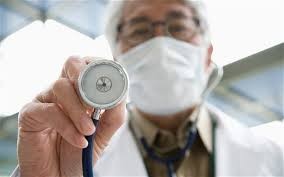A report recently published by Peking University indicates that investing in public health can significantly improve the domestic economy. A 10-percent increase in health-care per capita shows a direct link to an 8.7-percent increase in GDP per capita.
The study, called "The Health and Economic Prosperity Report," was conducted by the PKU China Center for Health Economic Research and Peking University's National School of Development.
In the report, the relationship between the economy and health care was studied and addressed.
"The report highlighted that investing in the health sector is worthwhile," Liu Guoen told the Global Times.
The PKU Yangtze River Scholar Professor of Economics teaches at Peking University's National School of Development and served as the principal investigator of "The Health and Economic Prosperity Report."
According to the report, overall health can be achieved through good environmental conditions, genetic factors, a healthy lifestyle, and health services available. The study also showed that a one-year increase in life expectancy correlates to a 7-percent increase in China's GDP per capita.
Investing in health care has long been considered by the Chinese government as expensive. Recent studies show that the country's medical service industry is behind its Western counterparts.
Chen Zhu, China's former health minister, already called on the government to increase expenditures on the health sector in 2010. Investing in China's medical service industry also leads to the generation of jobs, such as nutrition consultants, health consultants, and nursing home workers.
"The Health and Economic Prosperity Report" was based on data gathered by 21 Asia-Pacific Economic Cooperation members over decades.



























